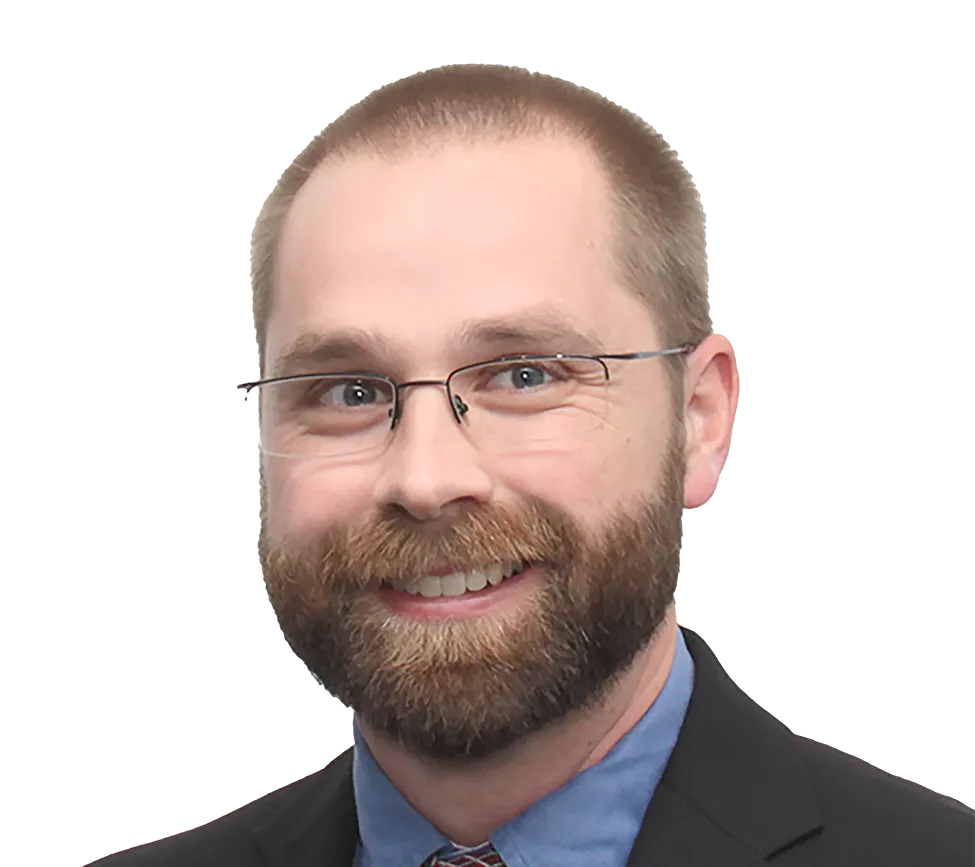

- Ph.D., Electrical Engineering, University of Utah, 2007
- M.E., Electrical Engineering, University of Utah, 2004
- B.S., Computational Physics, Illinois State University, 2002
- Professional Engineer, Alabama, #PE35816
- Professional Engineer, Illinois, #062065769
- 40-Hour Hazardous Waste Operation and Emergency Response Certification (HAZWOPER)
- Certified Fire and Explosion Investigator (CFEI)
- Certified Vehicle Fire Investigator (CVFI)
- OSHA #503 Update for General Industry Outreach Trainers
- NSF-Integrative Graduate Education and Research Traineeship Fellowship, 2003-2006
- Principal Member: Technical Committee on Electrical Inspection Practices; Committee scope covers NFPA 1078 Standard for Electrical Inspector Professional Qualifications and NFPA 78 Guide on Electrical Inspections - Founding Principal Member - Effective April 2017
Dr. Bishop applies his knowledge of electrical/electronic system failure modes and electrical codes to the analysis and investigation of marine, residential, commercial, and industrial incidents and fires; alleged consumer product and electrical equipment failures; electrical work practices; and hazard studies. Additionally, he applies his knowledge of simulation and measurement techniques associated with electric and magnetic fields, charged ion densities, and charged aerosols to characterize the environment around high voltage DC transmission lines.
Dr. Bishop provides his services to consumer product industry clients as well as industrial clients with issues related to electro-mechanical equipment, systems, and controls. He applies his experiences from field investigations of product and equipment failures to the evaluation of products during development and consumer product recall investigations. Dr. Bishop works closely with clients to understand the issues while leading and deploying multi-disciplinary engineering teams through the technical aspects of product recall investigations, product testing, and corrective action plan development. He and his team routinely assist clients with technical aspects related to home appliances, lighting fixtures, children products, furniture, Li-ion battery powered devices, plug-in electrical devices, fitness equipment, heating/cooling equipment, and many other categories of consumer products.
Dr. Bishop routinely conducts investigations involving electrical/electronic systems, such as those associated with compressors, dehumidifiers, contactors, and ranges for example, that are alleged to have caused fires in residential, commercial, and industrial facilities. He is actively involved in marine accident investigations involving alleged marine equipment failures, boat fires, and boat sinking incidents. He has experience advising clients on issues pertaining to the application of the National Electrical Code (NEC, also known as National Fire Protection Association, NFPA 70) to residential dwellings and industrial facilities. Additionally, he is experienced in advising clients for matters involving electrical work practices and associated standards. He conducts hazard studies of electrical installations and electrical equipment in hazardous (classified) and unclassified locations, as defined by the NEC, within residential, commercial, and industrial facilities. Dr. Bishop is a principal member of the NFPA technical committee on Electrical Inspection Practices. He has performed research associated with the NEC for the Fire Protection Research Foundation, which is the research arm of the NFPA. Additionally, Dr. Bishop has experience in residential construction including framing and electrical wiring.
Dr. Bishop has substantial knowledge of optical/laser systems, Micro-Mechanical-Electrical Systems (MEMS), Bio-MEMS, biological microarrays, and nano-applications. He has over 5 years of experience developing and testing sensor architectures utilizing electrical and/or optical readout for detection of parameters such as nucleic acid and protein presence, strain, and pressure.
At his previous employer, Dr. Bishop was in charge of multiple projects including designing an external respiration sensor to determine tidal volumes, and developing a method to maintain warmth and finger dexterity without the use of gloves. Additional projects included representing the human eye using optical components to characterize non-lethal weapons, developing protein biosensors, and developing a laser scalpel with tissue feedback control. Dr. Bishop's graduate research focused on real-time evanescent DNA biosensors and microarrays. He was responsible for developing the optical setup, activating and preparing the sensor surfaces, and writing the code to analyze the results of an experiment. In addition, he created a finite element model coupling mass transport and chemical reactions that accurately predicted the results of his experiments.
Dr. Bishop has experience writing and debugging Matlab, COMSOL, Fortran, LabView, and assembly language.
